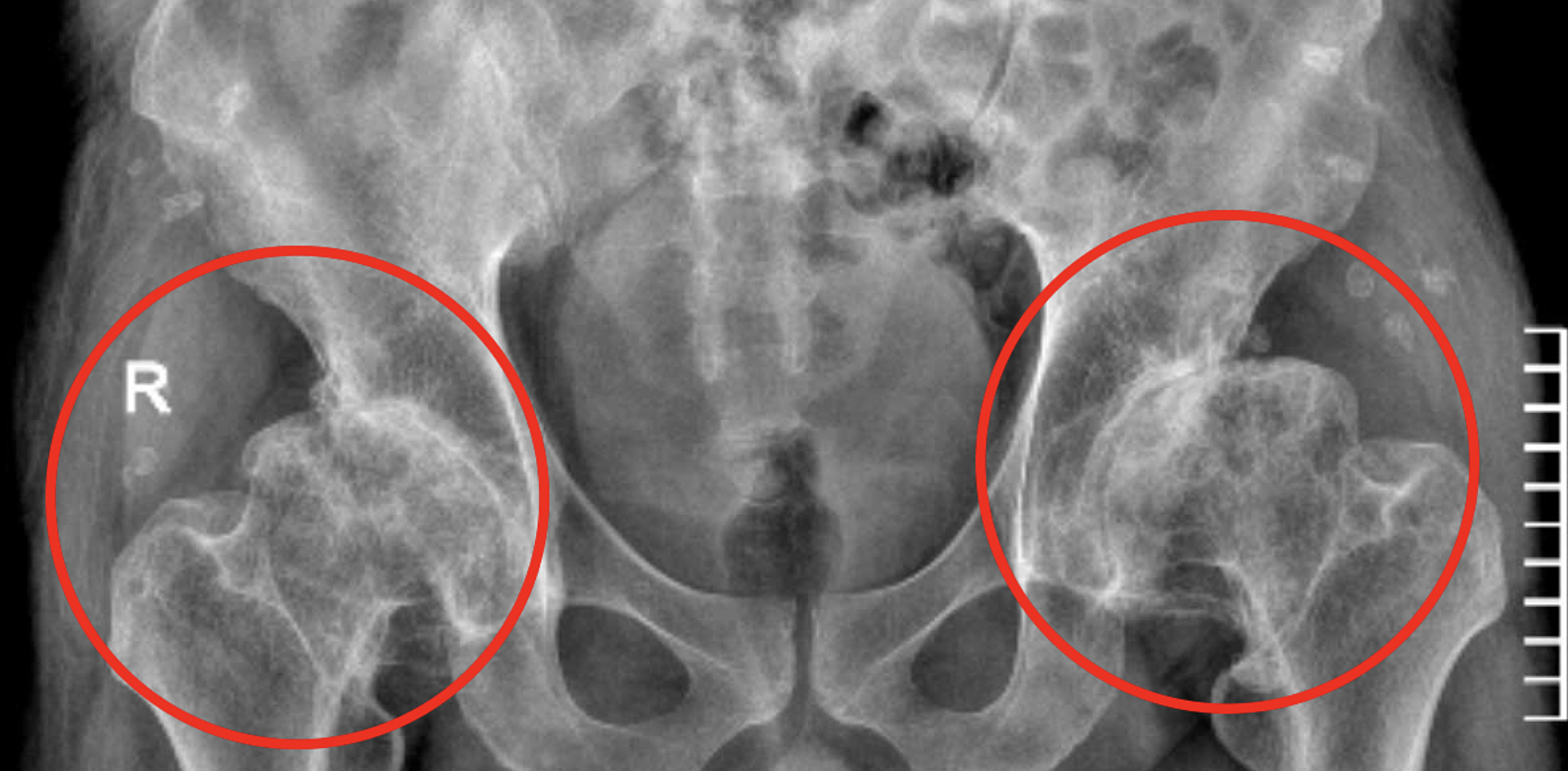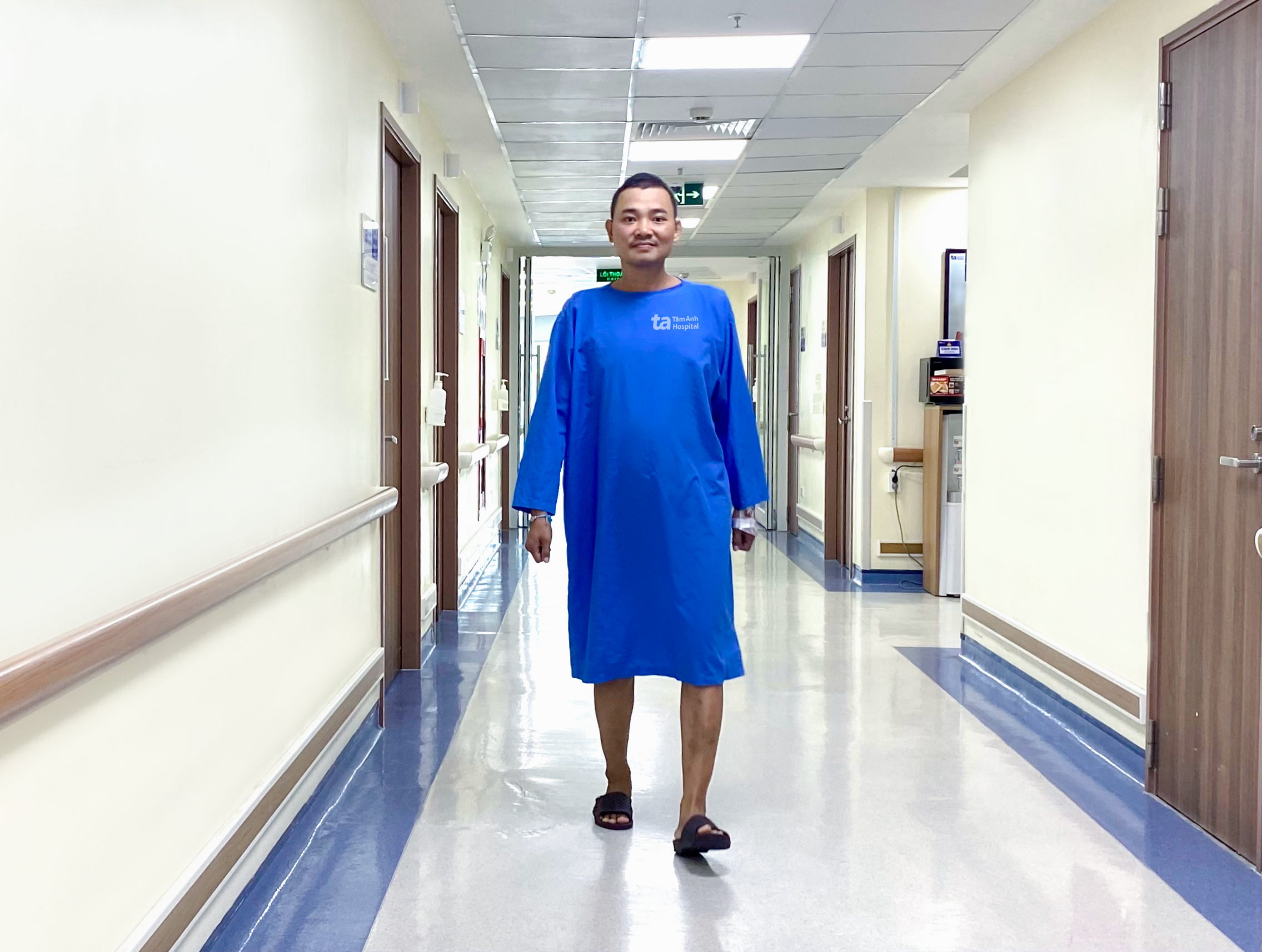For years, Dien relied on pain medication, massage, acupuncture, and thread embedding. Recent examination results at Tam Anh General Hospital in Ho Chi Minh City revealed that the necrosis in his femoral heads had reached the final stage. The femoral heads were fused to the pelvic sockets, effectively freezing and deforming his hip joints, causing intense pain and hindering normal movement.
Dr. Dang Khoa Hoc, Head of the General Orthopedic Trauma Department, recommended double hip replacement surgery to restore Dien's mobility and gait.
 |
X-ray results show the patient's deformed hip joint, fused to the socket. Photo: *Tam Anh General Hospital* |
Dr. Hoc assessed Dien's condition as having severe metabolic disorders, including diabetes, adrenal insufficiency, high uric acid levels, muscle weakness, and uncontrolled weight gain, all of which posed challenges for the surgery. Specifically, diabetes increased the risk of infection. Reduced bone density increased the risk of fractures during the procedure, potentially preventing the artificial hip components from being securely implanted, which could lead to femoral stem subsidence. Muscle weakness also increased the risk of dislocation and reduced post-operative mobility.
The surgical approach required minimizing operating time, invasiveness, pain, and blood loss to reduce infection risk and limit the use of post-operative anti-inflammatory painkillers. This was crucial to avoid impacting Dien's already compromised adrenal glands, according to Dr. Hoc. Dien also received pre-operative endocrine treatment. The surgical team operated on his left hip first, followed by his right hip 2.5 months later. After removing the damaged tissue, they implanted the artificial hip joints.
On the first post-operative day, Dien experienced significant pain relief and was discharged two days later, able to walk independently. Doctors predict he will be completely off pain medication within 2-3 weeks. At that point, the endocrinologist will implement a treatment plan to improve his adrenal function, stabilize his blood sugar, and address his metabolic disorders.
 |
Dien walks unassisted on the first day after his second hip surgery. Photo: *Tam Anh General Hospital* |
Individuals experiencing joint pain, especially persistent pain, should seek medical attention for proper diagnosis and treatment, avoiding self-medication. Pain relievers, particularly those containing corticosteroids, can lead to adrenal insufficiency with prolonged use, causing cardiovascular and neurological complications, metabolic disorders, and increased infection risk. In some cases, adrenal glands may not fully recover even after treatment, impairing hormone production and disrupting metabolic processes.
Phi Hong
| Readers can submit questions about musculoskeletal diseases here for doctors to answer. |












